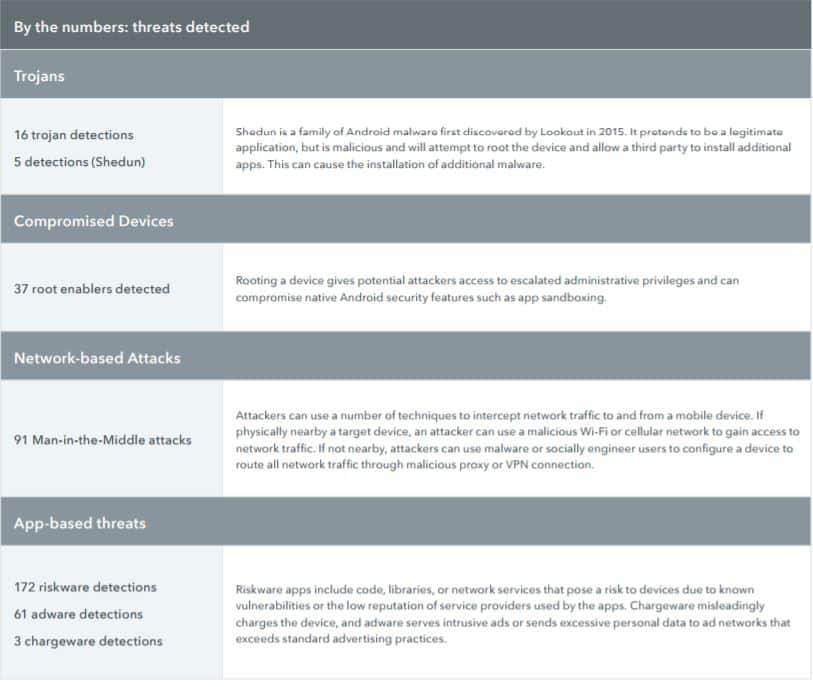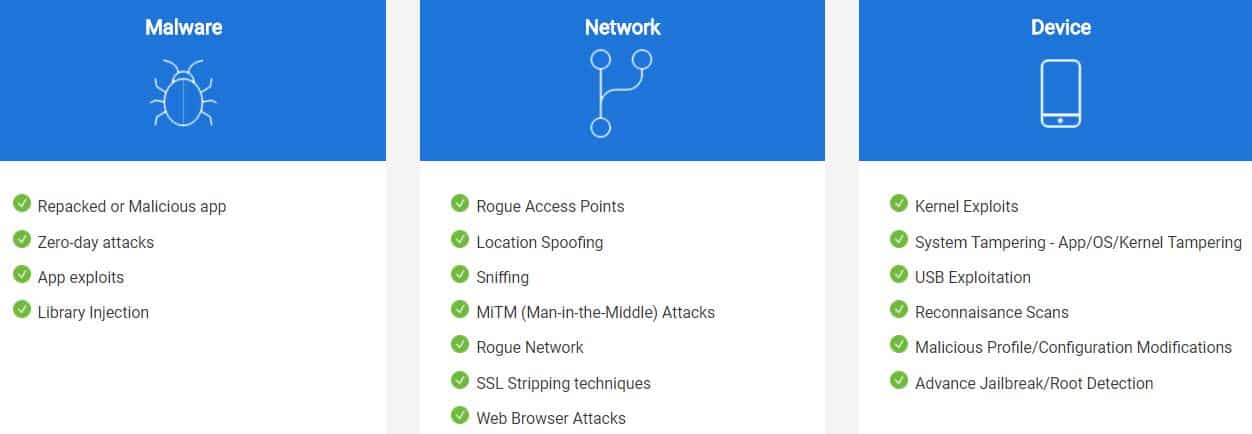8 Mobile Security Startups Using Artificial Intelligence
Table of contents

If you are fortunate to work as a corporate slave, then you’re probably familiar with the acronym BYOD which stands for “Bring Your Own Device”. The idea was that since everyone was carrying around their personal smartphone and their work issued smartphone, why not just combine the two so that employees have a better experience? That’s the reason HR gives, but the reality is that it’s just a big scam to get you to actually pay for a device that your company uses. Plus, since you’re now checking work emails on your personal device, guess what? You’re now working more (in some cases) to improve those shareholder returns. Everyone wins, right?
Regardless of whether or not you agree with BYOD, it’s now a reality for most large companies. As you would expect, combining your work device with your personal device has probably increased the number of security risks – and we’re not just talking about drunk dialing that cute sales rep “accidentally”, an act which these days will probably result in a battle to the death with an HR land monster.
The fact that sensitive company information can now be found on your personal device means that it needs to have a security solution that is robust but doesn’t drain your battery or take up lots of storage. This makes artificial intelligence (AI) a natural fit for a mobile security solution. The bright minds at CB Insights recently came out with a list of cybersecurity startups using AI and noted 5 names involved in mobile security seen below:
In addition to the 5 names listed above, we came across a few more names during our research and were also pinged by the folks over at Windera. Let’s look at these 8 startups that are using AI to improve mobile security.
Skycure
This first startup was actually acquired by Semantic just 9 days ago, but we’re going to write about them anyways because clearly they were doing something right. Founded in 2012, Silicon Valley startup Skycure took in $27.5 million in funding to develop an app that you install on your smartphone in the same way you would install anti-virus software on your laptop. Founded by a couple of Israeli military intelligence veterans, the startup claims to be the #1 provider of mobile security software to Fortune 500 customers. Symantec Corp. (NASDAQ:SYMC), the world’s leading cyber security company, announced 10 days ago that they’re acquiring Skycure for an undisclosed sum. The acquisition puts Symantec on the path to protect more than 1 billion endpoints.
Appthority
Founded in 2011, San Francisco startup Appthority has taken in $25.25 million so far to develop a “new approach to mobile risk” that evaluates what data apps are accessing, and how it’s being shared. They say that 67% of companies experience a data breach from mobile devices so pretty key selling point right there. Their database of over 3.5 million apps can be used to discover which apps may pose a problem across your organization:
They’re also a “global leader” with more Fortune 1000 companies using their solution than any other with an impressive 98% renewal rate. They underplay their use of AI but we did come across a statement that said “our cloud solution uses machine learning and automation to continuously detect hidden actions, malware code and a host of precursors to malicious actions that can leak or steal private company information“.
Wandera


Along with providing mobile data compression that saves dollars, the platform allows them to produce some very cool reports which provide insights like “40% of June’s total corporate mobile data was consumed by video, photo and social media apps and websites“. It looks like quite a few employees have taken up side jobs creating content for Mark Zuckerberg. Wandera’s mobile security offering is powered by MI:RIAM, a proprietary mobile intelligence engine that “detects and prevents zero-day attacks by applying machine learning to the industry’s largest and most varied real-time mobile data set“.
Lookout
All you undisputed leaders out there may want to take notice of this next leader. Founded in 2007, San Fran startup Lookout has taken in a whopping $282 million to develop their “global sensor network of more than 100 million users and tens of thousands of apps that are added daily“. Incredibly they claim to be adding more than 90,000 apps a day (we’re assuming that means app instances) and identifying more than 5,000 pieces of malware daily as well. Here’s what they found when they did a deployment across 9,000 Samsung Galaxy devices for a financial services firm:
Turns out that there is no free lunch, and all those “free apps” that we’re downloading are making their money by capturing our data and selling it. Now that we’ve entered the age of cryptocurrency, it’s only going to get much worse.
Better Mobile
Founded in 2011, New York startup Better Mobile has taken in $2.5 million in funding to become (wait for it…) “the leader in mobile threat defense“. Their app which is available for both Apple and Android consumes just 5% of your battery life and 1% of your CPU processing time to offer the same sort of protection that we see across all these “leaders”:
Included in their client list is Coca-Cola.
Zimperium
Founded in 2010, this startup goes by the name of Zimperium and is also located in San Fran. So far they’ve taken in $60 million from some big names that include Samsung and our favorite technology investor Softbank. Again we see a founder who began his career as a security researcher in the Israeli Defense Force, Zuk Avraham. As you would expect, the company uses machine learning algorithms to learn how regular users behave and then it detects anomalies that are indicative of security issues. Last month they announced they’re getting in bed with Microsoft.
Sentegrity
Founded in 2014, not a whole lot is known about this next startup, Sentegrity, except that they’ve taken in an undisclosed amount of funding to tackle the mobile security problem. We can’t find out who funded them, or how much they raised. Guys, drop us an email and let us know what you’re getting up to and we’ll happily update this sparse description of your company.
Mi3 security
Founded in 2013, Silicon Valley startup Mi3 security has taken in $550,000 in funding to develop their cloud-based Mi3 Security RECON Platform which is a machine learning engine that analyzes apps on demand. It’s “a machine-learning engine that leverages a wide array of threat intelligences sources, combined with rapid binary application analysis, to deliver a concrete and actionable list of risk conditions“. A great deal of their website is dedicated to telling you how much press they’ve had, and we don’t really see evidence that they’re becoming “a leader” in this space.
Conclusion
There are probably dozens of other mobile security “leaders” out there, but we’re trusting that CB Insights provided us with a fair representation along with the names we uncovered in our research. We’re starting to get the feeling that if you’re doing mobile security nowadays, you’re using AI to do it. The fact that all these companies are using machine learning just seems to be taken for granted – like being a leader is.
Sign up to our newsletter to get more of our great research delivered straight to your inbox!
Nanalyze Weekly includes useful insights written by our team of underpaid MBAs, research on new disruptive technology stocks flying under the radar, and summaries of our recent research. Always 100% free.


















